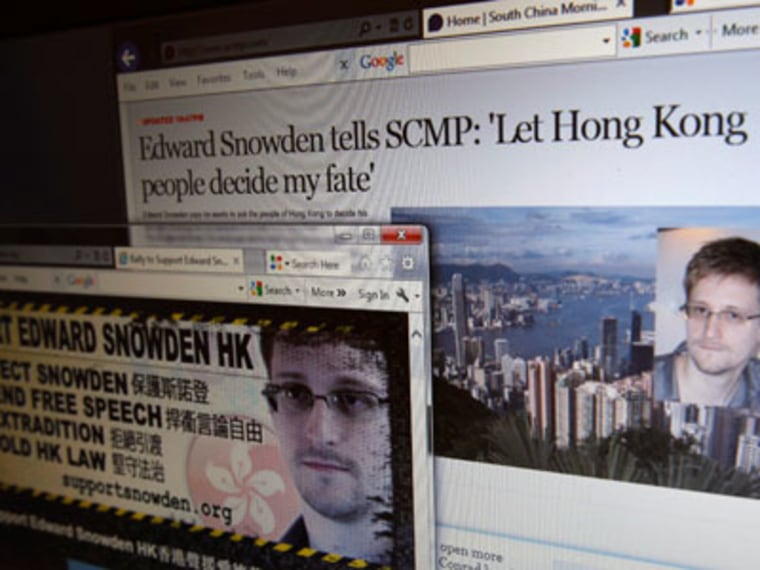Since outing himself as the man who leaked classified details about NSA surveillance to The Guardian and Washington Post, former government contractor Edward Snowden has been more than happy to discuss his actions and motives with members of the press. On Monday, he opened up even further, taking questions from the public in an online Q&A at the Guardian website.
Given the opportunity to respond to his critics, Snowden struck out at President Obama, former vice president Dick Cheney, and members of the media who he said had fallen short in their coverage. He was particularly strident when asked to respond to accusations that he was planning to trade classified information for asylum in China.
"This is a predictable smear that I anticipated before going public, as the US media has a knee-jerk 'RED CHINA!' reaction to anything involving HK or the PRC, and is intended to distract from the issue of US government misconduct," he wrote. "Ask yourself: if I were a Chinese spy, why wouldn't I have flown directly into Beijing? I could be living in a palace petting a phoenix by now."
When prompted to respond to those who have called him a traitor, he said, "being called a traitor by Dick Cheney is the highest honor you can give an America, and the more panicked talk we here from people like, [Sen. Dianne] Feinstein and [Rep. Peter] King, the better of we all are."
Related: NSA leaker comes forward, says government set to destroy privacy
He also alluded to the widespread media coverage of his past and his relationship with his girlfriend, calling it a distraction from the real issues.
"Unfortunately, the mainstream media now seems far more interested in what I said when I was 17 or what my girlfriend looks like rather than, say, the largest program of suspicionless surveillance in human history," he said.
But the most significant part of the Q&A was probably where Snowden replied to a question from journalist Anthony de Rosa regarding how the NSA collects data for its online PRISM surveillance program.
"[I]f an NSA, FBI, CIA, DIA, etc analyst has access to query raw SIGINT databases, they can enter and get results for anything they want," he wrote. "Phone number, email, user id, cell phone handset id (IMEI), and so on—it's all the same."
Electronic Frontier Foundation (EFF) staff technologist Micah Lee told msnbc in an email message that he "can't be 100% sure what [Snowden]'s talking about," but that it likely meant the US government had a SIGINT [signal intelligence] database they were building with data from Verizon and other carriers.
"If an analyst has permission to search this database then they can search the entire thing for anything that they want, including information about US citizens," said Lee, who noted this was only his "interpretation" of Snowden's words. "There are no technical 'permission denied'-type barriers. "
Instead of technical barriers, citizens' privacy relies on legal barriers. But Snowden's words indicate that might not be enough, said Cato Institute's Julian Sanchez.
"Things they're not legally supposed to do are nonetheless technically possible for analysts, who he seems to be suggesting don't necessarily need to worry too much about being caught," he said.
"US Persons do enjoy limited policy protections...and one very weak technical protection—a near-the-front-end filter at our ingestion points," wrote Snowden. "The filter is constantly out of date, is set at what is euphemistically referred to as the 'widest allowable aperture,' and can be stripped out at any time."
In other words, said Sanchez, "a lot of American stuff is going to get caught in that initial vacuum cleaner" when the NSA processes "that initial raw data from telecommunications providers."
But there's still much that's unknown about the extent of the surveillance or the methods used.
"Until journalists publish more information, we have no way of knowing for sure how the surveillance system works," Lee said.
Snowden, for his part, promised during the Q&A that more information about the technical details of PRISM would soon be forthcoming. His most concise answer was in response to a question about what advice he would give to other potential leakers.
"This country is worth dying for," was all he said.
Related links:
